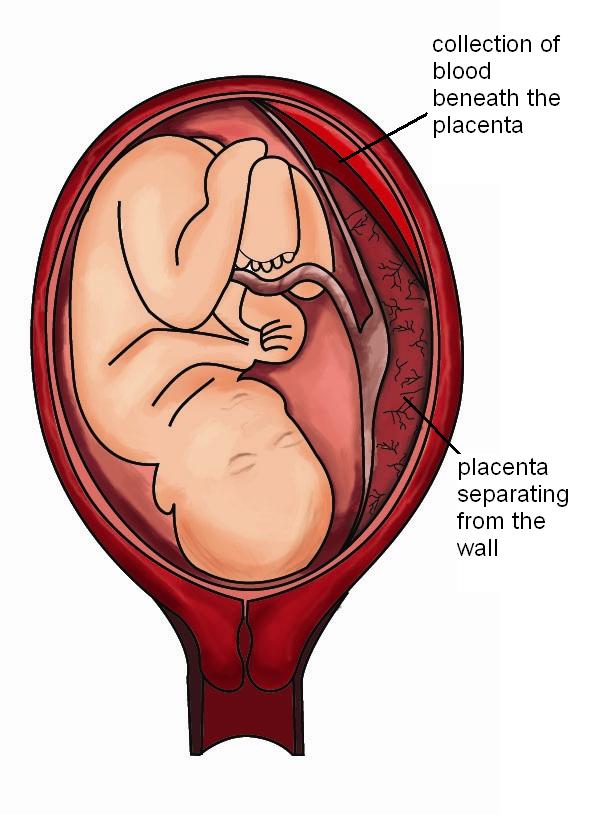
What is placental abruption?
This is a condition where a normally situated placenta abnormally separates from the wall of the uterus before your baby is born. It occurs in about 1 in 200 pregnancies. Placental abruption usually occurs in the third trimester but it could happen anytime after 20 weeks. The diagnosis is usually made based on clinical examination. Occasionally, it could be detected on the ultrasound scan.
What are the symptoms associated with placental abruption?
You may experience some of the following symptoms:
- Vaginal bleeding either a little or large in amount. This is usually associated with abdominal pain. In some women, the bleeding is concealed and there is no bleeding from the vagina at all.
- Reduced fetal movements
- Contraction pains.
Who are at risk of developing placental abruption?
- Smoking
- Cocaine drug user
- Women age > 35 years old
- History of placental abruption in previous pregnancy
- Pregnant with twins or more
- History of abdominal trauma
- Uterine abnormalities e.g fibroid beneath the placenta
- Premature preterm rupture of membranes (PPROM)
- History of chronic hypertension or preeclampsia
- Have underlying clotting disorder
- Too much amniotic fluid (polyhydramnios)
What are the complications associated with placental abruption?
When placenta abruption occurs, there will be a collection of blood between the placenta and the uterus. When this occurs, it could cause:
- Disruption of blood and oxygen supply to the baby, causing the baby to be distressed and die in the womb
- Premature contractions leading to premature labor and delivery
- Problems with blood clotting in the mother leading to widespread internal bleeding called disseminated intravascular coagulopathy(DIVC). This could be potentially fatal for both mother and baby.
What is the treatment for placenta abruption?
This depends on the severity of placental abruption, the gestation (how far along you are in pregnancy) and the presence of any complications to the mother and baby. If there is severe placental abruption with complications to the mother or any evidence that the baby is compromised, most likely you will be delivered earlier as most women will spontaneously go into labour. Mode of delivery will depend on further discussion with your doctor. However, if there is only partial placental abruption and both mother and baby are healthy, the doctor may adopt a conservative approach such as bed rest and close monitoring especially if the baby is still premature.
Filed under Labour Complications | No Comments








